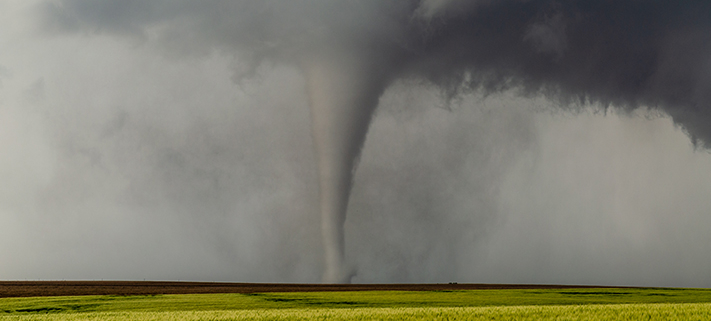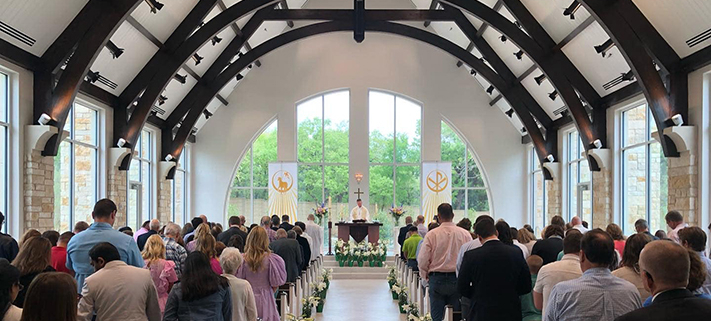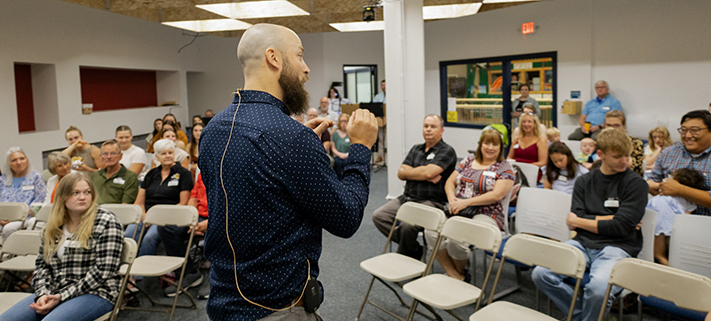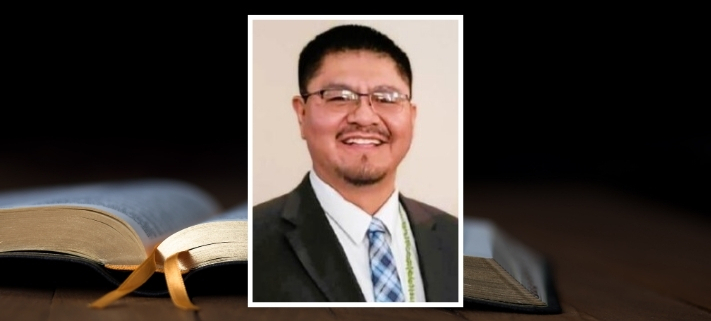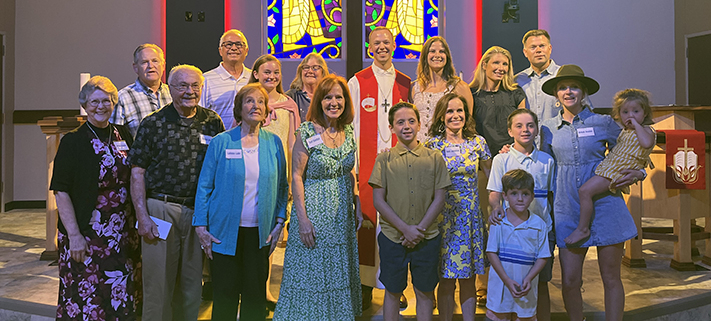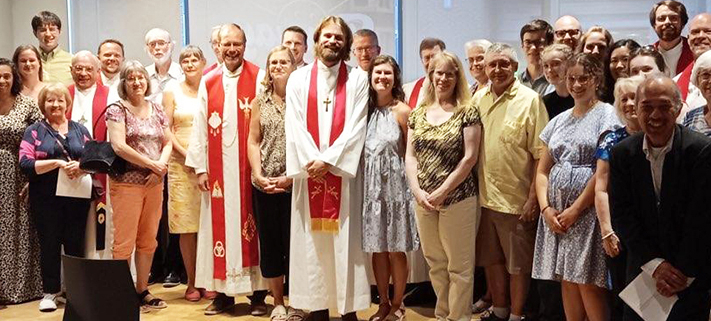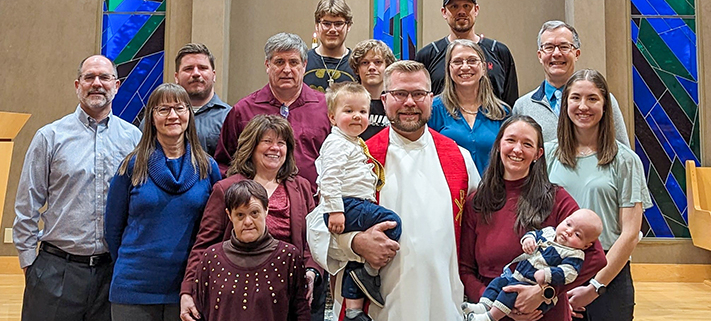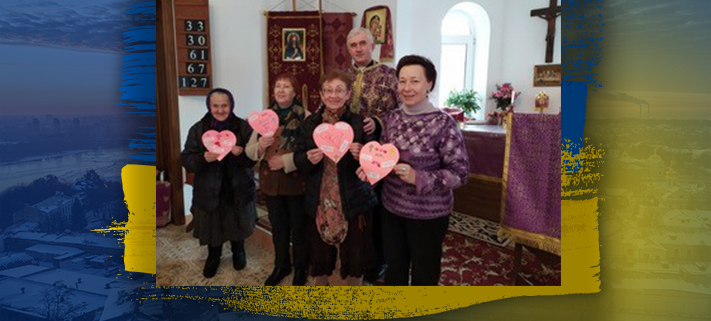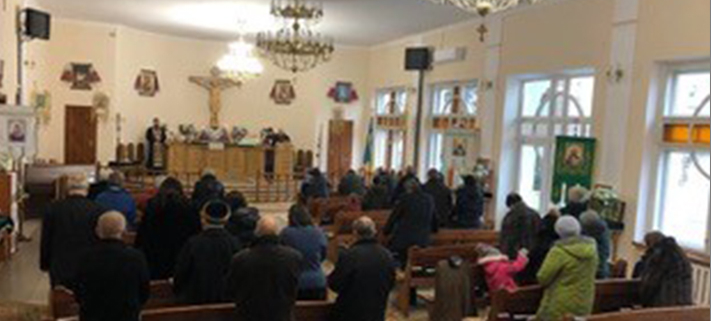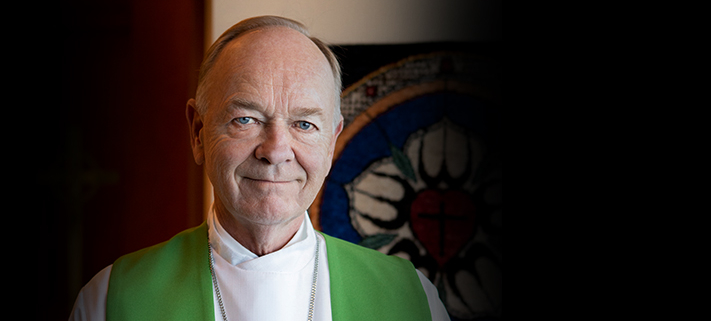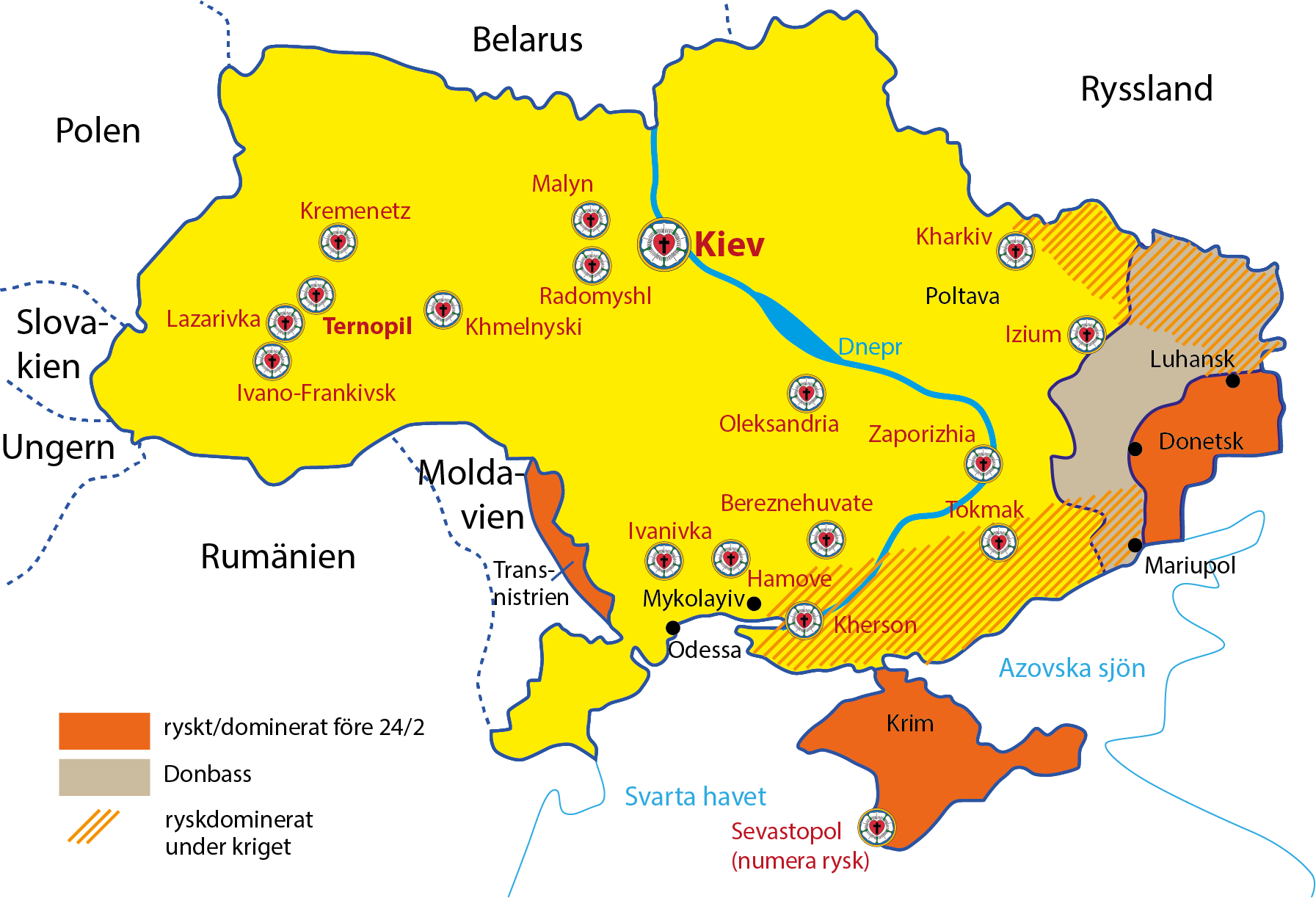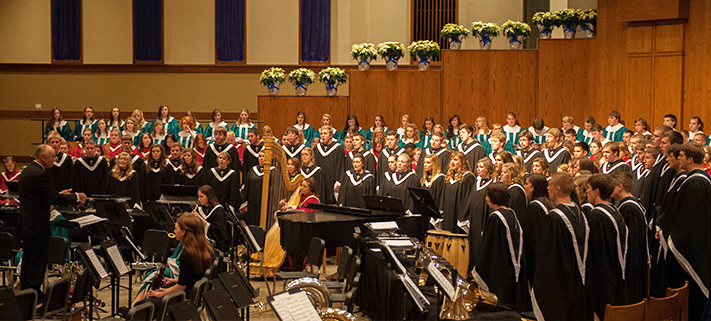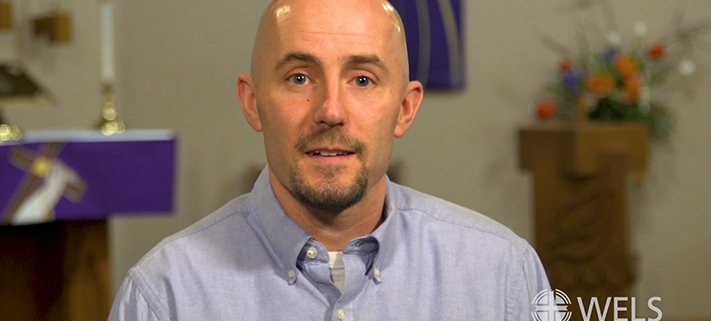Wait! That’s not one of our favorite words. Who likes to wait? In a long line at a checkout counter in a supermarket, for a freight train going four miles an hour at a railway crossing, for a prospective employer to make up his mind, in an airport when the monitor says your flight has been delayed, for your doctor to get back to you with the results of a biopsy? For most of us, waiting is not something we relish. It’s not a pleasant pastime; it’s a frustrating waste of time.
Sometimes perhaps, but not always. Especially not now at the beginning of a new church year. It’s Advent again, that perennial four-week season of the year that Christians set aside to prepare for the coming of the Lord. Advent is a Latin word that means “coming.” Coming implies waiting.
Advent is an invitation to wait—quietly, patiently, expectantly, joyfully.
Quietly and patiently
Advent waiting is something the people of God have been doing ever since God first promised a Savior from sin after the fall in Eden. God’s Old Testament people waited 4,000 years for that promise to be fulfilled. That was a long wait. The promise finally reached fulfillment with the birth, death, and resurrection of Jesus, the Messiah, the Son of God. Before Jesus left this world and returned to his throne in heaven, he issued another promise: “I will come back and take you to be with me that you also may be where I am” (John 14:3). That was 2,000 years ago. We are still waiting. That’s what Advent is all about.
The author of the book of Lamentations says, “It is good to wait quietly for the salvation of the Lord” (3:26). That is why the church, ever since the Synod of Lerida in A.D. 524, has designated the four weeks before Christmas on the church’s calendar as Advent. It is definitely a good thing to be waiting “for the salvation of the Lord.”
Waiting quietly, that is. And that’s not always an easy thing—given the prevailing moods that pervade the pre-Christmas atmosphere. As the masses see it, this is no time for waiting quietly. This is a time for hurrying and scurrying. You know the routine. Perhaps you get caught up in it too.
It takes conscious effort to resist the temptation to get swept up in the tide and then carried away in the secularization that is the hallmark of the Christmas season.
Advent says, “Wait, slow down! Don’t get entangled in the hustle and the bustle of the season. Get focused instead on what really matters.”
But what does it mean to “wait quietly for the salvation of the Lord?”
When the author of Lamentations wrote those words, Israel was at the nadir of its existence as a nation. It was 586 B.C., the date for the fall of Jerusalem and the destruction of the temple at the hands of Nebuchadnezzar, king of Babylon (Saddam Hussein’s predecessor). Wholesale slaughter and devastation engulfed kings, priests, princes, prophets, and common people alike. Starving mothers ate their offspring. The nation’s elite ended up in exile. The fall of Jerusalem was a wake-up call. God was using drastic measures to teach his apostate people to “wait quietly for the salvation of the Lord.” His promise to send a Savior had not been invalidated by the rebellion of his people.
A grim reminder that we too live in troublesome times—exacerbated by the constant and growing threat of terrorism, the erosion of basic morality, and the lack of respect for the sanctity of life? The season’s misplaced emphasis may be a diversion. But it’s hollow. It’s only temporary. In the midst of all the seasonal trappings, Advent is reminding us, “It is good to wait quietly.” For what? “For the salvation of the Lord.”
The exhortation to “wait quietly” presupposes that in this world “we do not have an enduring city,” and that we are “aliens and strangers on earth . . . longing for a better country—a heavenly one” (Hebrews 13:4; 11:13,16).
Expectantly and joyfully
The Advent disposition of waiting quietly for the salvation of the Lord evokes two dominant moods—expectation and joy. Advent expectation is nourished by the confidence that the Lord, who came once as he promised, will come again—as he promised. And when he does, all lamentations will come to an end as we are ushered, finally and endlessly, into the presence of our Lord. Meanwhile he says, “Lift up your heads, because your redemption is drawing near” (Luke 21:28).
Advent joy is nourished by the awareness that what we are waiting quietly for is the salvation of our Lord. What God’s Old Testament people awaited for 4,000 years is now an accomplished fact, signed, sealed, and delivered by the birth, death, and resurrection of our Lord. The Advent joy we have in Christ is a theme that St. Paul wove like a silver thread into his letter to the Philippians. Though he was being “poured out like a drink offering,” he could still say, “I am glad and rejoice with all of you. So you too should be glad and rejoice with me” (Philippians 2:17,18).
This coupling of the moods of expectation and joy is prominent in many of the 32 Advent hymns in Christian Worship (CW). Perhaps none of them expresses those moods to affect us more than does the familiar and beloved “Oh, Come, Oh, Come, Emmanuel.” The contrast between the opening lines and the refrain is unmistakable—and intentional. It makes the hymn what it is. The plea for Emmanuel to come “and ransom captive Israel” is somber, plaintive, and expectant. The refrain that follows is irrepressibly exuberant: “Rejoice! Rejoice!”
This year in Advent, read and ponder an Advent hymn a day. Look for the words “come,” “wait,” and “rejoice.” “The Advent of our King our prayers must now employ, And we must hymns of welcome sing in strains of holy joy” (CW 1:1). That’s the first of the Advent hymns. The last one ends on a similar note. “All grief must flee before his grace, And joy divine will take its place” (CW 32:1).
Let this Advent season be for you what our fathers meant it to be when they incorporated it into the Church’s calendar more than 1,500 years ago. May blessings abound to you as you remember that “it is good to wait quietly for the salvation of the Lord.”
Joel Gerlach, a retired pastor, is a member at St. John, Wauwatosa, Wisconsin.
Do you have a manuscript, idea, or story from your own life you’d like to share for use in Forward in Christ or on wels.net? Use our online form to share it to our editorial office for consideration.
Get inspirational stories, spiritual help, and synod news from Forward in Christ every month. Print and digital subscriptions are available from Northwestern Publishing House.
Author: Joel C. Gerlach
Volume 91, Number 12
Issue: December 2004
Copyrighted by WELS Forward in Christ © 2021
Forward in Christ grants permission for any original article (not a reprint) to be printed for use in a WELS church, school, or organization, provided that it is distributed free and indicate Forward in Christ as the source. Images may not be reproduced except in the context of its article. Contact us

